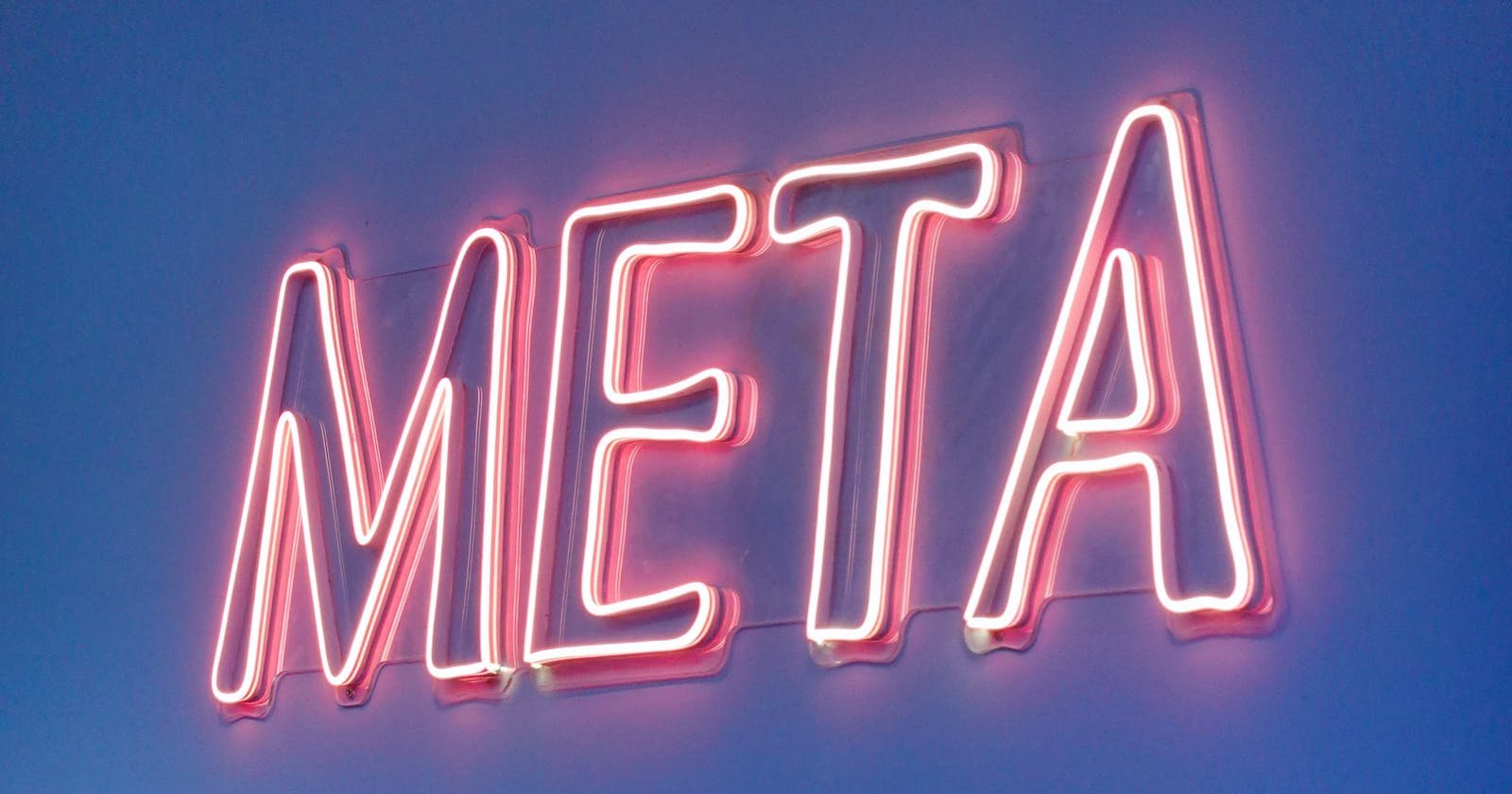Good Meta, Bad Meta and How to Spot Genuine Skill Trainers in a World of Fakes

I bet you've seen those posts around, writers who write about writing, YouTubers teaching you to YouTube, scam artists, teaching you how to get rich by selling courses on how to get rich to others.
I know that using "scam artists" might put an overly negative connotation, but I'm fully aware there are good folks out there behind brands that teach you to be something just like them, folks like Ali Abdaal, Sahil Bloom, Ramit Sethi, and the dudes from My First Million podcast.
Hell, I'm reading a book called Content Inc that teaches one to be a creator entrepreneur.
All that said, we need to differentiate between what is "useful meta" to what is "trash meta".
Meta is Meta
Meta posting means posting about posting. Meta cinematography means cinema looking at itself.
That's a good definition, that which talks about itself.
Bad Meta
Imagine that you want to learn how to become a master chef. You look up online and you find that there are two courses in the market.
Both claim to be able to teach you how to be a master chef in 6 months. And both are around the same value, $500 a month for 6 months.
Now you go try to evaluate them and see which is more valuable per cost.
Now one teacher has no fame on him being a great cook, he just sells really well.
The other has excellent fame behind him being a superb chef, but his pitch doesn’t excite you that much.
The Proof is in the Pudding
Now here's my first level of analysis on it, first, the cook must know how to cook.
So I look into the cook's history and see his/her credentials. If I'm convinced this person has achieved the outcome I want, then I move over to the second level of analysis.
The second level is "now that this person knows how to get there himself/herself they must know how to get me there too".
Normally this happens once I get sold on the mentor's skills and his pitch. If they have the skills that I want to learn and know how to get me excited for the course, normally they know how to teach it.
Now there's a third level of analysis. Social Proof. Maybe I was mistaken by the person's credentials and their sales pitch, maybe they didn't have the skills or the teaching skills to help me out.
That's where I look for other people's evaluations of the course. And here's a tip, if you want to see real evaluations, don't look for them on the course's page, anyone can pay to get fake evaluations.
Instead, just search "[Course Name] is worth it Reddit".
Reddit is a bottomless pit of talks and side comments, but when you need to see real people talking about their real experiences with something, it's the best place to go.
In summary:
- The cook must know how to cook.
- The cook must know how to get me where they are.
- Social proof that others have gotten where they wanted to go (I mostly use Reddit).
Extended Levels of Trust
But wait there is more, here's the extended levels of trust I assign to advice people give me and why (A higher level means more trust):
- The person doesn't know the skill and doesn't know me.
- The person knows me but doesn't know the skill.
- The person knows the skill.
- The person knows the skill and has led others to where I want to go.
- The person knows the skill and has led someone like ME to where I want to go.
- The person knows the skill and has led someone like ME to where I want to go multiple times.
I got inspired on a couple of these levels from this video by Alex Hormozi.
These levels of trust work together with the lite version above(with the 3 steps) but in more general terms, it involves not only looking at courses but also knowing which advice to accept and which to ignore, and any degrees in between.
So that means a friend has more trust in a subject simply because they know me, but I don't simply accept their advice on that alone. I still analyze if they have the skill on the advice they are giving, and if they have led others like me to where I want to go.
In summary, I might love my friends and family members, but if someone hasn't been where I want to go, I take their advice with a grain of salt.
Now back to what makes bad meta bad. We talked about the "fake" meta, the dude who knows how to sell cooking courses when they themselves don't know how to cook.
It's "I'll teach you to be rich" when the coach isn't rich and is in fact trying to get rich by selling that course to you.
It's when you're learning from someone that is turning you into a sucker.
Here's another type of bad meta.
Meta-skills with no application, no goal behind them, and learning for its own sake without any tests. This feels good but is not actually accomplishing anything.
You feel "productive" after taking a productivity class, but how can you tell if it was useful if when the time comes you don't use anything that you learned?
Good Meta
Good Meta skills are skills that allow you to perform your top-level skills even better. It's Stephen King knowing how to write better that makes his novels so much more enthralling.
Meta skills are useful because they can be reused across very different domains, not in and of themselves.
Take it that you studied architecture in college and learned how to organize your time, plan large projects, display information more clearly, and explain things to others in a simple way.
All those skills are paramount professionally, but they mean nothing if you don't use them in a specific situation like your job working as a UX designer for example.
I'm also convinced, that if you're just beginning, taking a meta-skill course won't do you much good, most of these skills you'll learn by doing something instead of taking a course.
You'll learn to organize yourself by putting yourself in situations where you'll be forced to organize to survive, like a difficult major in college (be it engineering, architecture, law, pre-med, etc.).
"But not everyone wants to be an engineer/architect/lawyer/doctor/etc. Lucas!" You're right, but you can still become better at organization skills simply by putting yourself in increasingly difficult situations.
Whatever your baseline is, you can get better by going above it. Whatever you learn doing things and improving in them will be far more powerful than whatever you learn at a "productivity course", guaranteed.
Of course, those courses have a time and a place. I'm not saying you shouldn't do them.
Once you start to get the gist of whatever it is you're doing, you'll find meta-skill training much more useful, because you already developed some of it on your own through trial and error, and you have a goal on where to use it.
There is a reason why the number 1 tip for writers is to "write". Or why professional cartoonists tell noobs to "just draw".
It is the same reason successful YouTubers tell people "Make 100 videos, then come back to ask what you can do to improve".
You gotta do the thing. While you do the thing, you'll develop keen senses and experience the little problems in that craft. Only then, when you take a course on productivity or the skill you want to learn, things will click for you.
Do the thing.
😗 Enjoy my writing?
If you read more than 2 of my posts and loved them, we have an honor code, meaning I give you value and you hit that subscribe button.
Forward to a friend and let them know where they can subscribe (hint: it’s here).
